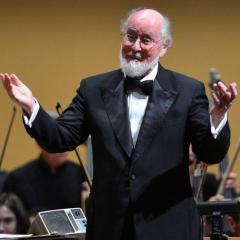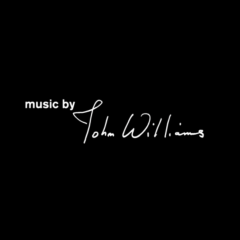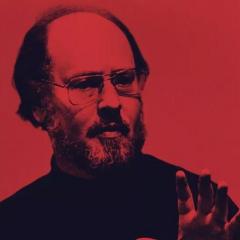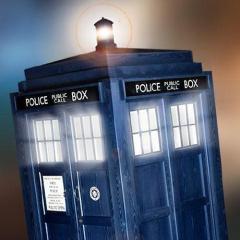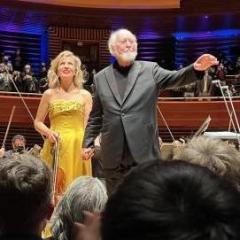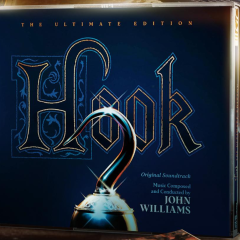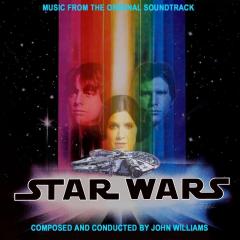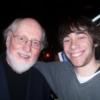-
Posts
733 -
Joined
-
Last visited
-
Days Won
18
Reputation Activity
-

-

-
 Falstaft reacted to Jay in DIAGON ALLEY TRACK MOVIE vs SOUNDTRACK ALBUM
Falstaft reacted to Jay in DIAGON ALLEY TRACK MOVIE vs SOUNDTRACK ALBUM
In 1983, the Return of the Jedi OST track "Rebel Briefing" actually contains music from the end of the movie. The cue for the rebel briefing is not on the album.
In 1988, the Accidental Tourist OST track "Wedding Scene" actually contains an alternate Main Title cue.
In 1989, the Last Crusade OST track "Escape From Venice" contains the music for a boat chase that happens entirely within Venice, a place they continue to be in for a while after the chase. The cue for when they leave Venice for Austria isn't on the album.
In 1997, the Lost World OST track "Rescuing Sarah" is for the second half of the trailer sequence, after Sarah is already rescued from the glass and they are working as a whole to get out of the trailer together. The actual cue for her being rescued from the glass isn't on the album.
In 1997, the Amistad OST track "Mr. Adams Takes the Case" combines the start of the cue for Adams' introduction scene with a cue for later in the film when he's talking to Joadson in his home. Both of these scenes take place before he's decided to take the case (he decides to take the case off-screen, there is no cue for it).
In 1999, the Phantom Menace OST track "Star Wars Main Title and the Arrival At Naboo" only contains the very start of the the arrival cue, almost immediately segueing to music from later in the film to end the track.
In 2002, the Attack of the Clones OST track "Star Wars Main Title and Ambush On Coruscant" only contains the very start of the ambush cue, almost immediately segueing to music from later in the film to end the track.
In 2005, the War of the Worlds OST track "Confrontation with Ogilvy" combined music from the "bodies in the river" scene (which is before the group has met Ogilvy) and the "Red Planet" scene (which begins after Ogilvy is already dead). The actual cue for Roy killing Ogilvy isn't on the album.
In 2015, the Force Awakens OST track "Rey Meets BB-8" combines the "Finding The Map" cue from the very end of the movie with the "I've Found The Droid" cue from the middle of the movie. Williams recorded 5 different cues for the scene of Rey meeting BB-8, but none of them are on the album. (The film did track in "Finding The Map" into the scene where they met, so this is sort of an exception I guess).
-

-
 Falstaft reacted to Holko in DIAGON ALLEY TRACK MOVIE vs SOUNDTRACK ALBUM
Falstaft reacted to Holko in DIAGON ALLEY TRACK MOVIE vs SOUNDTRACK ALBUM
A 5 minute track was recorded to play throughout the scene, the walk through Diagon Alley was meant to be scored by the woodwinds and witchy fiddle. Then a "Reveal insert" was recorded to change the start of the reveal into an orchestral swell because it wasn't magical and awe-inspiring enough. Williams liked the music he wrote and expanded it into a longer, slower tempo concert piece in his Harry Potter Children's Suite for Orchestra, "Diagon Alley". For the original 1 disc soundtrack album release, Williams replaced the opening portion of his full recorded track with part of the Diagon Alley concert piece, this is "Diagon Alley and the Gringotts Vault" as you know it. For the movie, the filmmakers decided the reveal needed more of a warm happy reveal and excitement than a weird new world, so they replaced that same opening section with a latter track that Williams wrote for entering the Great Hall. (Confusingly, the track on the 1 disc soundtrack album called "Entry into the Great Hall and the Banquet" does NOT contain this entry music, only the banquet music.) The film also appends part of "Hermione's Feather" to the start of the track for the bricks moving out of the way. The LLL expanded release linked above has the original recorded track combined with the Reveal Insert in Disc 1 track 7, "Diagon Alley and The Gringotts Vault [Extended Version]", the Great Hall entrance in Disc 1 track 13, "Through the Doors", and the concert piece in Disc 3 track 8, "Diagon Alley". The original recorded opening of the track for Diagon Alley, the Reveal Insert, the full unedited concert piece and Through the Doors all premiered on the set, they were never before released, they were only available in a recording sessions leak with the exception of the Reveal Insert. I've done two videos about how the original opening and the reveal insert opening would've worked in the film:
-
 Falstaft got a reaction from Bayesian in NEW book by Frank Lehman - The Skywalker Symphonies: Musical Storytelling in Star Wars
Falstaft got a reaction from Bayesian in NEW book by Frank Lehman - The Skywalker Symphonies: Musical Storytelling in Star Wars
Wow, thanks everyone! Obviously, the most important question to address is how I got those italics. Simple! https://lingojam.com/FacebookFonts
As for the timeframe: I have over a year to hand in the finished manuscript, but my goal is to have it completed well before that. It's a big book, and publishing is a very slow process. But everything so far is proceeding as I have forseen...
It's not a guide to the scores really, but something more holistic, with each chapter looking at cues from all three trilogies from some angle: musical referentiality, thematic transformation, concert arrangements, and so on. There will be a ton of music examples (all my own annotated transcriptions as usu.), hopefully presented in an accessible way that draws in people who can't read sheet music. I know notation and music-theory jargon can be intimidating, and I'm hyper-aware of the potential gatekeeping effect it could on an already niche readership. But at the same time, I think we can all agree this music warrants deep and serious analysis! It's a balancing act for sure...
Alas, I don't have special access to recordings, and can't speak to official expanded album releases, as amazing as they would be!
Incidentally: I don't see it trumpeted nearly enough on these boards but Chloé Huvet came out with a book on SW music (mainly the OT and PT) a couple years ago that is absolutely brilliant and similarly synthetic in approach. The book is in French, which limits the audience, but it's worth getting your hands on if only for the fantastic music examples and charts. The amount of insight in her prose is incredible too, and it's been a major source of inspriation to me.
-
 Falstaft got a reaction from Madmartigan JC in NEW book by Frank Lehman - The Skywalker Symphonies: Musical Storytelling in Star Wars
Falstaft got a reaction from Madmartigan JC in NEW book by Frank Lehman - The Skywalker Symphonies: Musical Storytelling in Star Wars
Wow, thanks everyone! Obviously, the most important question to address is how I got those italics. Simple! https://lingojam.com/FacebookFonts
As for the timeframe: I have over a year to hand in the finished manuscript, but my goal is to have it completed well before that. It's a big book, and publishing is a very slow process. But everything so far is proceeding as I have forseen...
It's not a guide to the scores really, but something more holistic, with each chapter looking at cues from all three trilogies from some angle: musical referentiality, thematic transformation, concert arrangements, and so on. There will be a ton of music examples (all my own annotated transcriptions as usu.), hopefully presented in an accessible way that draws in people who can't read sheet music. I know notation and music-theory jargon can be intimidating, and I'm hyper-aware of the potential gatekeeping effect it could on an already niche readership. But at the same time, I think we can all agree this music warrants deep and serious analysis! It's a balancing act for sure...
Alas, I don't have special access to recordings, and can't speak to official expanded album releases, as amazing as they would be!
Incidentally: I don't see it trumpeted nearly enough on these boards but Chloé Huvet came out with a book on SW music (mainly the OT and PT) a couple years ago that is absolutely brilliant and similarly synthetic in approach. The book is in French, which limits the audience, but it's worth getting your hands on if only for the fantastic music examples and charts. The amount of insight in her prose is incredible too, and it's been a major source of inspriation to me.
-
 Falstaft got a reaction from enderdrag64 in NEW book by Frank Lehman - The Skywalker Symphonies: Musical Storytelling in Star Wars
Falstaft got a reaction from enderdrag64 in NEW book by Frank Lehman - The Skywalker Symphonies: Musical Storytelling in Star Wars
It's definitely a challenge, given how frustratingly incomplete and jumbled the score's presentation is. I'm not approaching any of the 9 as if they need any special defending. But in the case of TROS, I do feel I can offer a small corrective to what I see as a kind of mistreatment of Williams's swan song, both by the filmmakers and (more vexingly to me) the general public.
I doubt there will be an audiobook -- it'd be unprecedented if there were for this particular book series (the Oxford Music/Media line). Though who knows... with AI emulation these days, maybe someone could enter all the text in and have it read back to you in the voice of Ian McDiarmid!
There certainly will be an online companion though that has lots of short clips and such on it.
I'm sure I'll cite Kalinak's chapter somewhere, though it's not especially central to what I'm doing. I don't know Evensen's SW/Wagner work, though, trust me, that angle is something I've got plenty to say about. Particularly since I think a lot of the existing scholarly treatment of the Williams/Wagner connection is at best superficial. But the man is a black hole: get too close and he completely dominates whatever subject you thought you were writing about before. So I'm trying to take care to keep the focus on JW rather than him.
-
 Falstaft got a reaction from BrotherSound in NEW book by Frank Lehman - The Skywalker Symphonies: Musical Storytelling in Star Wars
Falstaft got a reaction from BrotherSound in NEW book by Frank Lehman - The Skywalker Symphonies: Musical Storytelling in Star Wars
It's definitely a challenge, given how frustratingly incomplete and jumbled the score's presentation is. I'm not approaching any of the 9 as if they need any special defending. But in the case of TROS, I do feel I can offer a small corrective to what I see as a kind of mistreatment of Williams's swan song, both by the filmmakers and (more vexingly to me) the general public.
I doubt there will be an audiobook -- it'd be unprecedented if there were for this particular book series (the Oxford Music/Media line). Though who knows... with AI emulation these days, maybe someone could enter all the text in and have it read back to you in the voice of Ian McDiarmid!
There certainly will be an online companion though that has lots of short clips and such on it.
I'm sure I'll cite Kalinak's chapter somewhere, though it's not especially central to what I'm doing. I don't know Evensen's SW/Wagner work, though, trust me, that angle is something I've got plenty to say about. Particularly since I think a lot of the existing scholarly treatment of the Williams/Wagner connection is at best superficial. But the man is a black hole: get too close and he completely dominates whatever subject you thought you were writing about before. So I'm trying to take care to keep the focus on JW rather than him.
-
 Falstaft got a reaction from Taikomochi in NEW book by Frank Lehman - The Skywalker Symphonies: Musical Storytelling in Star Wars
Falstaft got a reaction from Taikomochi in NEW book by Frank Lehman - The Skywalker Symphonies: Musical Storytelling in Star Wars
Wow, thanks everyone! Obviously, the most important question to address is how I got those italics. Simple! https://lingojam.com/FacebookFonts
As for the timeframe: I have over a year to hand in the finished manuscript, but my goal is to have it completed well before that. It's a big book, and publishing is a very slow process. But everything so far is proceeding as I have forseen...
It's not a guide to the scores really, but something more holistic, with each chapter looking at cues from all three trilogies from some angle: musical referentiality, thematic transformation, concert arrangements, and so on. There will be a ton of music examples (all my own annotated transcriptions as usu.), hopefully presented in an accessible way that draws in people who can't read sheet music. I know notation and music-theory jargon can be intimidating, and I'm hyper-aware of the potential gatekeeping effect it could on an already niche readership. But at the same time, I think we can all agree this music warrants deep and serious analysis! It's a balancing act for sure...
Alas, I don't have special access to recordings, and can't speak to official expanded album releases, as amazing as they would be!
Incidentally: I don't see it trumpeted nearly enough on these boards but Chloé Huvet came out with a book on SW music (mainly the OT and PT) a couple years ago that is absolutely brilliant and similarly synthetic in approach. The book is in French, which limits the audience, but it's worth getting your hands on if only for the fantastic music examples and charts. The amount of insight in her prose is incredible too, and it's been a major source of inspriation to me.
-
 Falstaft got a reaction from oierem in NEW book by Frank Lehman - The Skywalker Symphonies: Musical Storytelling in Star Wars
Falstaft got a reaction from oierem in NEW book by Frank Lehman - The Skywalker Symphonies: Musical Storytelling in Star Wars
It's definitely a challenge, given how frustratingly incomplete and jumbled the score's presentation is. I'm not approaching any of the 9 as if they need any special defending. But in the case of TROS, I do feel I can offer a small corrective to what I see as a kind of mistreatment of Williams's swan song, both by the filmmakers and (more vexingly to me) the general public.
I doubt there will be an audiobook -- it'd be unprecedented if there were for this particular book series (the Oxford Music/Media line). Though who knows... with AI emulation these days, maybe someone could enter all the text in and have it read back to you in the voice of Ian McDiarmid!
There certainly will be an online companion though that has lots of short clips and such on it.
I'm sure I'll cite Kalinak's chapter somewhere, though it's not especially central to what I'm doing. I don't know Evensen's SW/Wagner work, though, trust me, that angle is something I've got plenty to say about. Particularly since I think a lot of the existing scholarly treatment of the Williams/Wagner connection is at best superficial. But the man is a black hole: get too close and he completely dominates whatever subject you thought you were writing about before. So I'm trying to take care to keep the focus on JW rather than him.
-
 Falstaft got a reaction from crocodile in NEW book by Frank Lehman - The Skywalker Symphonies: Musical Storytelling in Star Wars
Falstaft got a reaction from crocodile in NEW book by Frank Lehman - The Skywalker Symphonies: Musical Storytelling in Star Wars
It's definitely a challenge, given how frustratingly incomplete and jumbled the score's presentation is. I'm not approaching any of the 9 as if they need any special defending. But in the case of TROS, I do feel I can offer a small corrective to what I see as a kind of mistreatment of Williams's swan song, both by the filmmakers and (more vexingly to me) the general public.
I doubt there will be an audiobook -- it'd be unprecedented if there were for this particular book series (the Oxford Music/Media line). Though who knows... with AI emulation these days, maybe someone could enter all the text in and have it read back to you in the voice of Ian McDiarmid!
There certainly will be an online companion though that has lots of short clips and such on it.
I'm sure I'll cite Kalinak's chapter somewhere, though it's not especially central to what I'm doing. I don't know Evensen's SW/Wagner work, though, trust me, that angle is something I've got plenty to say about. Particularly since I think a lot of the existing scholarly treatment of the Williams/Wagner connection is at best superficial. But the man is a black hole: get too close and he completely dominates whatever subject you thought you were writing about before. So I'm trying to take care to keep the focus on JW rather than him.
-
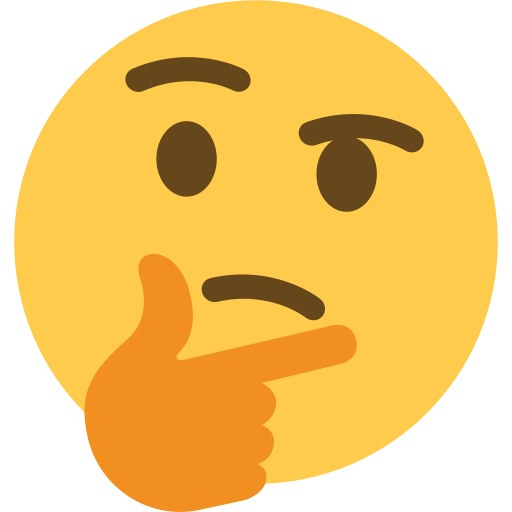 Falstaft reacted to Jay in NEW book by Frank Lehman - The Skywalker Symphonies: Musical Storytelling in Star Wars
Falstaft reacted to Jay in NEW book by Frank Lehman - The Skywalker Symphonies: Musical Storytelling in Star Wars
OK, fixed the thread title.
-
 Falstaft got a reaction from Jay in NEW book by Frank Lehman - The Skywalker Symphonies: Musical Storytelling in Star Wars
Falstaft got a reaction from Jay in NEW book by Frank Lehman - The Skywalker Symphonies: Musical Storytelling in Star Wars
Haha, nothing really. Thinking I should really be spending less time online and more time finishing this book, I guess!
-
 Falstaft reacted to Garrett in John Williams tapped to score Oliver Stone’s Donald Trump (2027)
Falstaft reacted to Garrett in John Williams tapped to score Oliver Stone’s Donald Trump (2027)
Per Cinema Herald:
Legendary composer John Williams has been tapped to score Oliver Stone's upcoming film, "Donald Trump," set for release in 2027. The film will explore the life and presidency of Donald Trump. Stone, known for his provocative and politically charged filmmaking style, is expected to bring his unique perspective to this highly anticipated project.
Williams expressed his excitement for the collaboration, stating, "Working with Oliver Stone is always a creatively fulfilling experience, and I am thrilled to be a part of this project."
Williams revealed that he has already written the main theme. “Oliver wanted me to write an ambiguous theme that could be played in either a major or minor key, depending on the context. So I wrote a motif that goes up a major second, down a perfect fifth, and then up a perfect fourth. Hopefully, I’ve written something that might contribute in some way to the audience’s listening experience, if only on a subconscious level.”
This collaboration is set to deliver a captivating musical narrative, leaving fans eagerly awaiting the film's release.
-
 Falstaft reacted to Manakin Skywalker in BREAKING NEWS: Disney Records to never release STAR WARS & INDIANA JONES Complete Collection Boxsets
Falstaft reacted to Manakin Skywalker in BREAKING NEWS: Disney Records to never release STAR WARS & INDIANA JONES Complete Collection Boxsets
No jokes today, just an unfortunate apparent reality.
-
 Falstaft got a reaction from Bofur01 in NEW book by Frank Lehman - The Skywalker Symphonies: Musical Storytelling in Star Wars
Falstaft got a reaction from Bofur01 in NEW book by Frank Lehman - The Skywalker Symphonies: Musical Storytelling in Star Wars
Wow, thanks everyone! Obviously, the most important question to address is how I got those italics. Simple! https://lingojam.com/FacebookFonts
As for the timeframe: I have over a year to hand in the finished manuscript, but my goal is to have it completed well before that. It's a big book, and publishing is a very slow process. But everything so far is proceeding as I have forseen...
It's not a guide to the scores really, but something more holistic, with each chapter looking at cues from all three trilogies from some angle: musical referentiality, thematic transformation, concert arrangements, and so on. There will be a ton of music examples (all my own annotated transcriptions as usu.), hopefully presented in an accessible way that draws in people who can't read sheet music. I know notation and music-theory jargon can be intimidating, and I'm hyper-aware of the potential gatekeeping effect it could on an already niche readership. But at the same time, I think we can all agree this music warrants deep and serious analysis! It's a balancing act for sure...
Alas, I don't have special access to recordings, and can't speak to official expanded album releases, as amazing as they would be!
Incidentally: I don't see it trumpeted nearly enough on these boards but Chloé Huvet came out with a book on SW music (mainly the OT and PT) a couple years ago that is absolutely brilliant and similarly synthetic in approach. The book is in French, which limits the audience, but it's worth getting your hands on if only for the fantastic music examples and charts. The amount of insight in her prose is incredible too, and it's been a major source of inspriation to me.
-
 Falstaft got a reaction from ChrisAfonso in NEW book by Frank Lehman - The Skywalker Symphonies: Musical Storytelling in Star Wars
Falstaft got a reaction from ChrisAfonso in NEW book by Frank Lehman - The Skywalker Symphonies: Musical Storytelling in Star Wars
Wow, thanks everyone! Obviously, the most important question to address is how I got those italics. Simple! https://lingojam.com/FacebookFonts
As for the timeframe: I have over a year to hand in the finished manuscript, but my goal is to have it completed well before that. It's a big book, and publishing is a very slow process. But everything so far is proceeding as I have forseen...
It's not a guide to the scores really, but something more holistic, with each chapter looking at cues from all three trilogies from some angle: musical referentiality, thematic transformation, concert arrangements, and so on. There will be a ton of music examples (all my own annotated transcriptions as usu.), hopefully presented in an accessible way that draws in people who can't read sheet music. I know notation and music-theory jargon can be intimidating, and I'm hyper-aware of the potential gatekeeping effect it could on an already niche readership. But at the same time, I think we can all agree this music warrants deep and serious analysis! It's a balancing act for sure...
Alas, I don't have special access to recordings, and can't speak to official expanded album releases, as amazing as they would be!
Incidentally: I don't see it trumpeted nearly enough on these boards but Chloé Huvet came out with a book on SW music (mainly the OT and PT) a couple years ago that is absolutely brilliant and similarly synthetic in approach. The book is in French, which limits the audience, but it's worth getting your hands on if only for the fantastic music examples and charts. The amount of insight in her prose is incredible too, and it's been a major source of inspriation to me.
-
 Falstaft got a reaction from mstrox in NEW book by Frank Lehman - The Skywalker Symphonies: Musical Storytelling in Star Wars
Falstaft got a reaction from mstrox in NEW book by Frank Lehman - The Skywalker Symphonies: Musical Storytelling in Star Wars
Wow, thanks everyone! Obviously, the most important question to address is how I got those italics. Simple! https://lingojam.com/FacebookFonts
As for the timeframe: I have over a year to hand in the finished manuscript, but my goal is to have it completed well before that. It's a big book, and publishing is a very slow process. But everything so far is proceeding as I have forseen...
It's not a guide to the scores really, but something more holistic, with each chapter looking at cues from all three trilogies from some angle: musical referentiality, thematic transformation, concert arrangements, and so on. There will be a ton of music examples (all my own annotated transcriptions as usu.), hopefully presented in an accessible way that draws in people who can't read sheet music. I know notation and music-theory jargon can be intimidating, and I'm hyper-aware of the potential gatekeeping effect it could on an already niche readership. But at the same time, I think we can all agree this music warrants deep and serious analysis! It's a balancing act for sure...
Alas, I don't have special access to recordings, and can't speak to official expanded album releases, as amazing as they would be!
Incidentally: I don't see it trumpeted nearly enough on these boards but Chloé Huvet came out with a book on SW music (mainly the OT and PT) a couple years ago that is absolutely brilliant and similarly synthetic in approach. The book is in French, which limits the audience, but it's worth getting your hands on if only for the fantastic music examples and charts. The amount of insight in her prose is incredible too, and it's been a major source of inspriation to me.
-
 Falstaft got a reaction from Andy in Your Favourite Jerry Goldsmith Score
Falstaft got a reaction from Andy in Your Favourite Jerry Goldsmith Score
It's just amazing, isn't it?
On one hand, I think "The Meld" as we all know from the film it is a masterpiece and one of the most skillful and effective musical climaxes in Goldsmith's filmography. (Which may be close to saying it's one of the most skillful & effective musical climaxes/payoffs in film, period!)
On the other hand, the rejected cue is simply magnificent, and clearly works wonders with the scene.
-
 Falstaft got a reaction from Tom Guernsey in Your Favourite Jerry Goldsmith Score
Falstaft got a reaction from Tom Guernsey in Your Favourite Jerry Goldsmith Score
It's just amazing, isn't it?
On one hand, I think "The Meld" as we all know from the film it is a masterpiece and one of the most skillful and effective musical climaxes in Goldsmith's filmography. (Which may be close to saying it's one of the most skillful & effective musical climaxes/payoffs in film, period!)
On the other hand, the rejected cue is simply magnificent, and clearly works wonders with the scene.
-
 Falstaft got a reaction from rpvee in NEW book by Frank Lehman - The Skywalker Symphonies: Musical Storytelling in Star Wars
Falstaft got a reaction from rpvee in NEW book by Frank Lehman - The Skywalker Symphonies: Musical Storytelling in Star Wars
Wow, thanks everyone! Obviously, the most important question to address is how I got those italics. Simple! https://lingojam.com/FacebookFonts
As for the timeframe: I have over a year to hand in the finished manuscript, but my goal is to have it completed well before that. It's a big book, and publishing is a very slow process. But everything so far is proceeding as I have forseen...
It's not a guide to the scores really, but something more holistic, with each chapter looking at cues from all three trilogies from some angle: musical referentiality, thematic transformation, concert arrangements, and so on. There will be a ton of music examples (all my own annotated transcriptions as usu.), hopefully presented in an accessible way that draws in people who can't read sheet music. I know notation and music-theory jargon can be intimidating, and I'm hyper-aware of the potential gatekeeping effect it could on an already niche readership. But at the same time, I think we can all agree this music warrants deep and serious analysis! It's a balancing act for sure...
Alas, I don't have special access to recordings, and can't speak to official expanded album releases, as amazing as they would be!
Incidentally: I don't see it trumpeted nearly enough on these boards but Chloé Huvet came out with a book on SW music (mainly the OT and PT) a couple years ago that is absolutely brilliant and similarly synthetic in approach. The book is in French, which limits the audience, but it's worth getting your hands on if only for the fantastic music examples and charts. The amount of insight in her prose is incredible too, and it's been a major source of inspriation to me.
-
 Falstaft got a reaction from Edmilson in NEW book by Frank Lehman - The Skywalker Symphonies: Musical Storytelling in Star Wars
Falstaft got a reaction from Edmilson in NEW book by Frank Lehman - The Skywalker Symphonies: Musical Storytelling in Star Wars
Wow, thanks everyone! Obviously, the most important question to address is how I got those italics. Simple! https://lingojam.com/FacebookFonts
As for the timeframe: I have over a year to hand in the finished manuscript, but my goal is to have it completed well before that. It's a big book, and publishing is a very slow process. But everything so far is proceeding as I have forseen...
It's not a guide to the scores really, but something more holistic, with each chapter looking at cues from all three trilogies from some angle: musical referentiality, thematic transformation, concert arrangements, and so on. There will be a ton of music examples (all my own annotated transcriptions as usu.), hopefully presented in an accessible way that draws in people who can't read sheet music. I know notation and music-theory jargon can be intimidating, and I'm hyper-aware of the potential gatekeeping effect it could on an already niche readership. But at the same time, I think we can all agree this music warrants deep and serious analysis! It's a balancing act for sure...
Alas, I don't have special access to recordings, and can't speak to official expanded album releases, as amazing as they would be!
Incidentally: I don't see it trumpeted nearly enough on these boards but Chloé Huvet came out with a book on SW music (mainly the OT and PT) a couple years ago that is absolutely brilliant and similarly synthetic in approach. The book is in French, which limits the audience, but it's worth getting your hands on if only for the fantastic music examples and charts. The amount of insight in her prose is incredible too, and it's been a major source of inspriation to me.
-
 Falstaft got a reaction from Yavar Moradi in Your Favourite Jerry Goldsmith Score
Falstaft got a reaction from Yavar Moradi in Your Favourite Jerry Goldsmith Score
It's just amazing, isn't it?
On one hand, I think "The Meld" as we all know from the film it is a masterpiece and one of the most skillful and effective musical climaxes in Goldsmith's filmography. (Which may be close to saying it's one of the most skillful & effective musical climaxes/payoffs in film, period!)
On the other hand, the rejected cue is simply magnificent, and clearly works wonders with the scene.
-
 Falstaft reacted to Yavar Moradi in Your Favourite Jerry Goldsmith Score
Falstaft reacted to Yavar Moradi in Your Favourite Jerry Goldsmith Score
It was indeed “Meet V’Ger” — the opening sounds very much like TOS Fred Steiner and it’s fine. But after that it’s like a cross between Bernard Herrmann and Jerry Goldsmith in the best way; I absolutely love the effect of the slowed-down pumping Starfleet motif, making it more ominous and imposing as they, well, meet V’Ger and that sound mixes in. Pretty damn brilliant and I would have believed the cue was Jerry.
“A Good Start” is perfectly fine but it feels very much like Steiner simply cut-and-pasting earlier Goldsmith music from the score. Nothing fresh or exciting there for me, just basic reprises.
”System Inoperative” and “Hidden Information” are perfectly effective in the film itself (I like those hits for the destructive balls of energy that go out and surround Earth) but yeah rather a slog on album. I like “Inner Workings” much better but I guess compared to other Goldsmith cues it’s rather understated too. But I adore the way Ilia’s Theme appears 2-3 min in. So subtle and powerful. And the rising piano and wind machine followed by delicate organ in the final minute! Yeah sorry, it’s way better than nine of the Steiner cues IMO.
“V’Ger Speaks” is less interesting again but it do love the brief Ilia’s Theme drop-in at 2:46-3:05… just not as much as what Jerry himself does with it in the previous cue.
I really really wish Goldsmith had been able to record his fantastic original version of “Body Meld” at the end, where the amazing Ilia’s Theme gets the final flowering/development the whole score frankly feels like it’s building towards… grateful for Joe Kraemer’s professional realization with samples though:
Yavar


